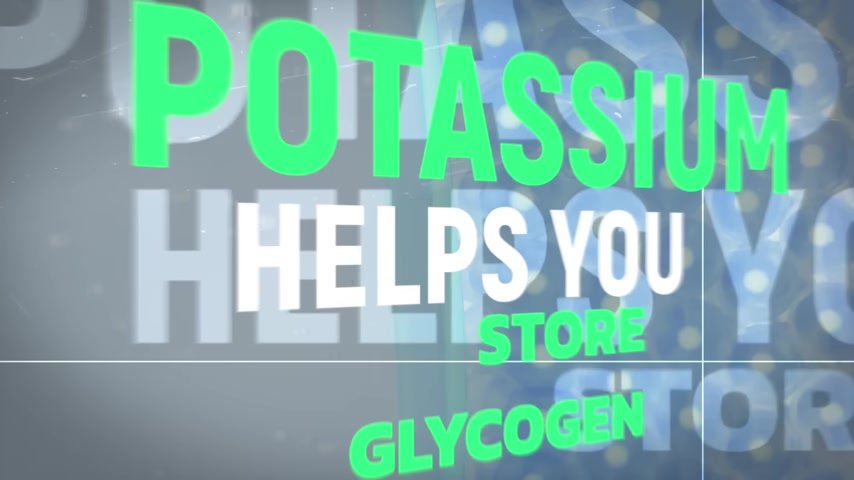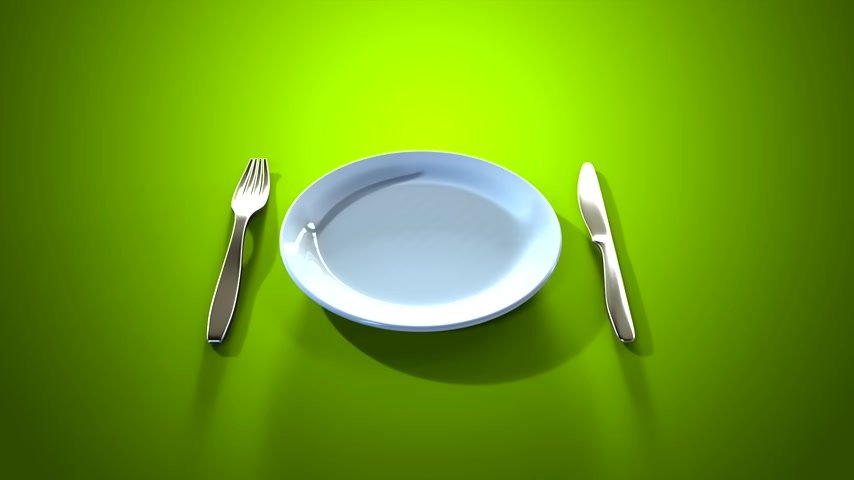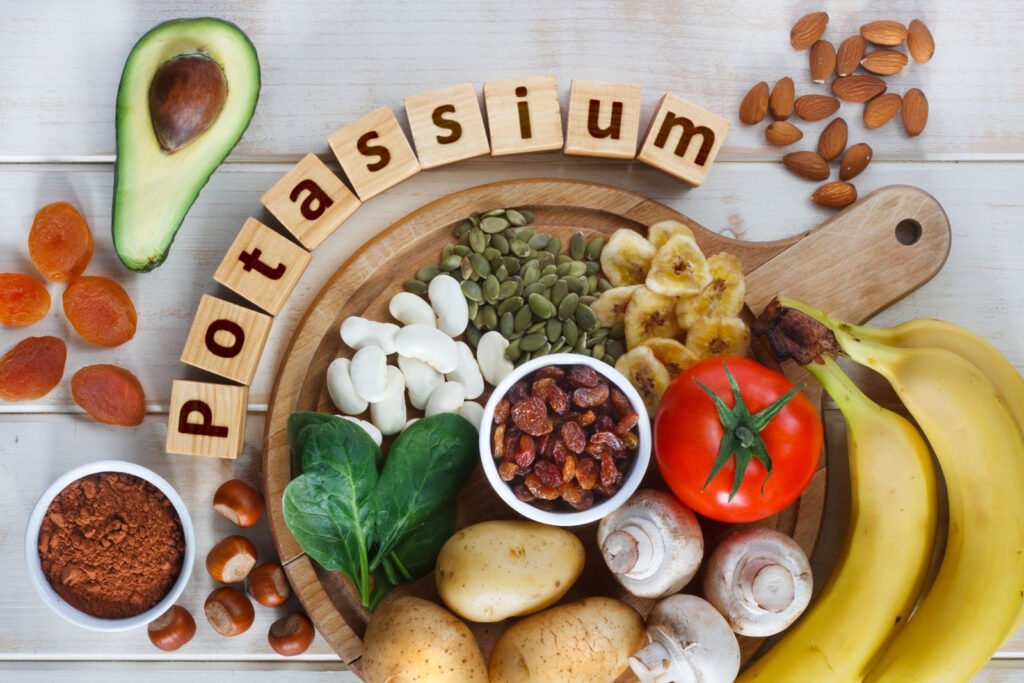Table of Contents
Discover the widespread issue of potassium deficiency and its impact on health. Learn about symptoms, causes, dietary sources, and effective treatments to ensure adequate potassium intake
Potassium is a vital nutrient essential for numerous bodily functions, including nerve and muscle cell operations. Despite its importance, potassium deficiency is a prevalent issue, often overlooked in modern diets dominated by processed and fast foods.
In this article, Dr. Berg delves into the symptoms, signs, dietary sources, causes, and treatments of potassium deficiency. Historical evidence suggests that Stone Age humans consumed significantly more potassium than the current recommended intake, highlighting the drastic change in dietary patterns. Potassium deficiency can lead to symptoms like weakness, fatigue, heart palpitations, high blood pressure, increased stroke risk, fluid retention, bone loss, and kidney stones. Leafy greens are rich sources of potassium, providing between 500 to 800 milligrams per cup.
However, supplements may not be sufficient, as they typically offer low amounts per tablet. Factors contributing to potassium deficiency include certain medications, stress, high-carb or ketogenic diets without proper supplementation, and inadequate electrolyte intake during fasting.
Refeeding syndrome, a severe risk after prolonged fasting, can lead to potassium deficiency and other complications. Hypokalemia, or low potassium levels, can result in symptoms like fatigue, muscle weakness, abnormal heart rhythms, and cardiac arrest if left untreated.
Learn how to ensure adequate potassium intake through diet and lifestyle changes to support your overall health.
How much potassium do you need?
| Category | Details |
|---|---|
| Role of Potassium | – Essential for muscle function, nerve transmission, and maintaining fluid and electrolyte balance. |
| Symptoms of Potassium Deficiency | – Muscle cramps – Weakness – Fatigue – Constipation – Irregular heartbeats – Tingling or numbness |
| Causes of Potassium Deficiency | – Poor dietary intake – Excessive sweating – Use of diuretics – Chronic diarrhea – Kidney disorders |
| Health Effects of Deficiency | – Increased risk of hypertension and cardiovascular diseases – Muscle paralysis – Poor digestion – Fatigue and weakness |
| Sources of Potassium | – Leafy greens – Bananas – Avocados – Beans – Nuts – Seeds – Potatoes – Fish |
| Dr. Berg’s Recommendations | – Increase potassium intake through diet – Consider potassium supplements if necessary – Follow a balanced and nutrient-rich diet |
| Importance of Monitoring Levels | – Regular check-ups with healthcare providers – Monitoring for signs of deficiency – Maintaining a balanced diet for overall health |
Out of all the nutrients that our body needs , potassium is at the very top of the list as far as the huge requirements .
We’re talking 40 700 milligrams .
Potassium explained
No other nutrient comes even close to that .
Now the question is why ?
Why do we need so much potassium ?
Because potassium fulfills a very , very important enzyme that’s involved in the sodium potassium pump .
This pump is in all of your nerve cells .
It’s in all of your muscle cells .
It is the pump that establishes the battery of our cells .
We need this pump to move electrical impulses .

We also need this pump for muscle contraction that are in your arteries .
We need it in the heart for the heart muscle , as well as in your kidney .
And today , we’re gonna talk about the consequences of not having enough potassium in our diet .
Potassium RDAs
But there’s some new information I wanna share with you from a paper entitled achieving the benefits of a high potassium paleolithic diet without the toxicity .

Apparently , 1000 of years ago in the stone age , humans have consumed a lot more than 47 100 milligrams .
In fact , there’s evidence to show that humans consumed up to 15 , 000 milligrams of potassium every single day .
That’s 4 times the current RDAs , which is still quite high .
47100 .
And then if we look at the relationship of potassium to sodium with those levels , we’re talking 16 times more potassium than sodium .
So there’s some really interesting credible data to show that we need even more potassium than we really think .
And what backs that up is the kidney .
Our kidneys have a very robust capacity to get rid of excess potassium .
But not sodium , but potassium .
So sometimes people say that , oh , yeah .
Potassium is bad for the kidneys .
It can create problems .
That’s only in , like , stage 5 kidney disease , which is end stage kidney disease .

If you take large amounts of potassium before you get kidney disease , it actually has been shown to be protective against kidney disease .
I mean , the average person consumes , like , 1.5 cups of vegetables , which are the primary source of potassium .
And , no , you’re not gonna get a lot of potassium from bananas .
Bananas have roughly about 300 milligrams .
So you’d have to eat a lot of bananas to get your fulfillment of potassium .
And , of course , bananas have a lot of fructose , which comes with other issues .
Potatoes are also supposed to have a lot of potassium , but , of course , the starch creates other issues .
1 medium sized potato has about 600 milligrams of potassium , but just 1 cup of leafy greens is between 500 to 800 milligrams .
That’s 1 cup .
And if you consumed , like , 5 , 7 , or even 10 cups , well , that would give you a tremendous amount of potassium .
The point is we need a lot of potassium .
We probably need more than we’re consuming .
Unfortunately , the average person is not consuming enough potassium from the diet .
Potassium supplements
And you might say , well , maybe they’re getting it from their supplements .
Well , the majority of supplements only give you , like , between 49 to , at the very most , 99 milligrams per tablet .
So how many pills would you have to take per day to even get your daily requirement of potassium ?
Well , you’d have to have 47 pills .
No one’s gonna do that .
Potassium deficiency
And if we look at a potassium deficiency , it’s often missed .
It’s omitted because most of the potassium is inside the cell , like 98% .
So you can’t accurately determine if you have a low potassium situation just by the blood because most of the potassium is inside the cell .
You would have to do a different type of test called an intracellular potassium test .
Potassium deficiency symptoms
Not to mention the symptoms of a potassium deficiency are sometimes very vague , especially in the beginning .
You might have a little bit of weakness in your diaphragm that affects your breathing a little bit .

It’s hard to breathe .
You might feel a little fatigue .
You might have heart palpitations .
But these are all just early signs of a potassium deficiency .
But eventually , as that deficiency becomes worse , you can develop high blood pressure .
You can actually have an increased risk of stroke .
You can get fluid retention .
You can even get loss of bone and kidney stones because potassium helps keep calcium out of the arteries and out of the urine .
Because sometimes when people get their urine tested , they have high levels of calcium in their urine , which is , you know , kind of an environment to form a kidney stone .
As you can see , potassium is really , really important , and it can create a lot of problems .
| Topic | Information |
|---|---|
| Symptoms of Potassium Deficiency | Muscle cramps, weakness, fatigue, constipation, irregular heartbeats, tingling or numbness. |
| Health Effects | Can lead to serious health issues like heart arrhythmias and muscle paralysis if not addressed. |
| Sources of Potassium | Leafy greens, bananas, avocados, beans, nuts, seeds, potatoes, and fish. |
| Recommendations | Increase potassium intake through diet and consider supplements if necessary. |
| Importance of Potassium | Essential for muscle function, nerve transmission, and maintaining fluid and electrolyte balance. |
Potassium deficiency causes
Now there’s some interesting reasons why people are deficient that go beyond just not consuming enough greens .
If you take penicillin , that can create a potassium deficiency , or diuretics or steroids or go through chronic stress or have higher levels of insulin with a high carb diet .
Another interesting reason why people are deficient is even going on the ketogenic diet .
So let’s say , for example , you start the ketogenic diet , which is a low carb diet , and , you’re going into this already deficient in potassium , and you take no potassium electrolytes or supplements .

What happens is potassium helps you store glycogen .
That’s that stuff in your liver and your muscles , stored sugar .
So as you use that up , what comes with that is a lot of water release and a loss of potassium as well .
So if you don’t take potassium when you start the ketogenic diet , you may end up with a potassium deficiency from that reason .

But also you have if you’re fasting for , like , 3 or 4 days , right , and you don’t take supplements , especially electrolytes like potassium , trace minerals , or b vitamins , and you’re doing this prolonged fast , you can start having problems from that .
Not to mention , let’s say you fasted for 3 or 4 or 5 days , and then you eat too much too quickly , and then you also ate too many carbohydrates .
That’s called refeeding syndrome , which is a severe potassium deficiency .
Now I’m not gonna get into the details , but it can create a sudden shift of potassium from your blood right into the cell , and you can end up with a serious low potassium problem , which could be dangerous
Did you realize that the average person in the US consumes , like , 60% of their calories from ultra processed foods where they strip the nutrients out ?
I mean , let’s just take Doritos , for example .

I used to love Doritos .
I would consume huge bags of Doritos in college .
I mean , just massive amounts .
And the next morning , I would end up with all sorts of fluid retention in my fingers and my feet .
And at the time , I had no information about health .
I was the worst .
So back then , I think they put 11 ingredients in these Doritos , and now it’s , I think , up to 30 ingredients , different flavors that just make it taste like you’re dipping a taco with hot wings into ranch dressing .
And so is there a lot of potassium in Doritos ?
No .
There’s a lot of sodium in all these fast food restaurants .
So it gives you this flavoring , which is kind of addicting .
So you eat too much of it , and then you end up with a potassium deficiency .
So all these fast food restaurants , as you see them , as you’re driving down the street , are just pumping out empty calories filled with a lot of sodium , very little nutrients , if anything , practically 0 potassium .
And you can see it too .
If you watch people coming out of these these , restaurants and look at their eyes .

It’s all swollen around the eyes .
They don’t look healthy .
They’re also gonna lose the power of their cellular batteries , so they’re gonna be walking around tired .
And each 1 of those symptoms will then probably be addressed by a separate drug .
So they’re on high blood pressure medication .
They’re on a blood thinner .
They’re probably taking high energy drinks .
And , of course , a diuretic for the edema and the high blood pressure , which causes further potassium deficiencies .
I challenge you to do this experiment with your own body .
My potassium challenge
| Category | Details |
|---|---|
| Symptoms of Potassium Deficiency | – Muscle cramps – Weakness – Fatigue – Constipation – Irregular heartbeats – Tingling or numbness |
| Sources of Potassium | – Leafy greens – Bananas – Avocados – Beans – Nuts – Seeds – Potatoes – Fish |
| Health Benefits of Potassium | – Supports muscle function – Aids nerve transmission – Maintains fluid and electrolyte balance – Helps regulate blood pressure – Reduces risk of stroke and cardiovascular diseases |
| Recommendations | – Increase intake through potassium-rich foods – Consider supplements if necessary – Follow a balanced diet for overall health |

Start consuming a lot of high potassium foods .
A lot of leafy greens .
Just for a week .
And if you don’t like greens , just you can make shakes .
Blend kale with blueberries .
There’s a lot of different recipes .
But start to increase more potassium rich foods , and just notice how many of these problems start disappearing .
key Points:
- Your body requires a lot of potassium. The daily requirement for potassium is 4700 mg.
- Potassium is important for the sodium-potassium pump. The sodium-potassium pump is like a battery for your cells.
- Vegetables are the best source of potassium. One cup of leafy greens provides between 500 and 800 mg of potassium. If you consumed five to ten cups of vegetables daily, you would get plenty of potassium. In comparison, a banana only provides about 300 mg of potassium. Bananas also contain a lot of fructose.
- Unfortunately, the average person is not getting enough potassium from their diet—and potassium supplements typically only give you up to 99 mg of potassium per tablet.
- Potassium deficiency is often overlooked. It’s difficult to diagnose, and symptoms of a potassium deficiency are sometimes vague. Early symptoms often include difficulty breathing, fatigue, and heart palpitations.
A more severe deficiency in potassium can lead to the following:
• High blood pressure
• Increased risk of stroke
• Fluid retention or edema
• Bone loss
• Kidney stones
Causes of potassium deficiency that go beyond a lack of potassium in the diet can include:
• Penicillin
• Diuretics
• Steroids
• Chronic stress
• High insulin (high-carb diet)
• Refined or processed foods
- Even the keto diet and prolonged fasting can lead to a potassium deficiency if not done correctly. You will lose potassium as you lose water weight on keto. Consuming enough potassium on keto and taking a potassium supplement while doing a prolonged fast is crucial.
- Eating too much too quickly after a prolonged fast or consuming too many carbs after a prolonged fast can also cause a severe potassium deficiency, which can be dangerous.
- My challenge for you is to start consuming a lot of foods high in potassium, like leafy greens, for one week and see how you feel. I think you’re going to notice a big difference.
DATA:
https://pubmed.ncbi.nlm.nih.gov/26948054
https://www.mayoclinicproceedings.org/article/S0025-6196(16)00047-1/fulltext
FAQ:
Creating SEO-friendly answers for your FAQ section involves using relevant keywords, providing clear and concise information, and ensuring that the content is easily readable. Here are optimized responses for each of your questions:
How do you feel when your potassium is low?
When your potassium is low, you may experience symptoms such as muscle cramps, weakness, fatigue, irregular heartbeats, constipation, and tingling or numbness. Severe potassium deficiency can lead to more serious health issues, so it’s important to address these symptoms promptly.
How much potassium a day?
The recommended daily intake of potassium for adults is about 2,500 to 3,000 milligrams. However, the exact amount can vary based on age, gender, and specific health conditions. It’s best to consult with a healthcare provider for personalized recommendations.
What organ is affected by low potassium?
Low potassium primarily affects the heart, as it is crucial for maintaining normal heart rhythms. Additionally, muscles, including those in the digestive system, can be affected, leading to muscle cramps and digestive issues. The kidneys also play a role in regulating potassium levels.
Is it safe to take a potassium supplement daily?
Taking a potassium supplement daily is generally safe when done under the guidance of a healthcare provider. Over-supplementation can lead to hyperkalemia (high potassium levels), which can be harmful. It’s essential to follow recommended dosages and consult a healthcare provider for individualized advice.
potassium and blood pressure
emphasizes that adequate potassium intake is crucial for regulating blood pressure. Potassium helps balance sodium levels in the body, which can reduce hypertension and support cardiovascular health. Dr. Berg recommends increasing potassium intake through diet or supplements for optimal blood pressure management.
Best potassium supplement
The best potassium supplement varies depending on individual needs. Potassium citrate, potassium gluconate, and potassium chloride are common forms. Dr. Berg’s Potassium Powder is popular due to its high-quality formulation and ease of use. Always consult a healthcare provider before starting any supplement.
potassium powder
Potassium Powder is a dietary supplement designed to boost potassium intake. It supports muscle function, nerve health, and cardiovascular wellness. This powder is especially beneficial for individuals who struggle to meet their potassium needs through diet alone.
potassium chloride
Potassium Chloride is a supplement that helps maintain electrolyte balance and supports healthy muscle and nerve function. Potassium chloride can be particularly useful for individuals with potassium deficiency or those who need to balance their electrolyte levels.
Potassium-rich foods
Potassium-rich foods include leafy greens, bananas, avocados, beans, nuts, seeds, potatoes, and fish. Incorporating these foods into your diet can help maintain adequate potassium levels and support overall health.
Low potassium symptoms
Symptoms of low potassium (hypokalemia) include muscle cramps, weakness, fatigue, constipation, irregular heartbeats, and tingling or numbness. Severe cases may lead to more serious health issues, such as heart arrhythmias and muscle paralysis.
Dr. Berg potassium iodide
Potassium Iodide is a supplement that combines potassium with iodine to support thyroid function and overall health. Potassium iodide can be used in specific scenarios, such as protecting the thyroid gland during radiation exposure and ensuring adequate iodine intake for thyroid hormone production.




